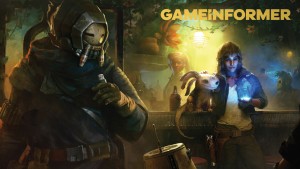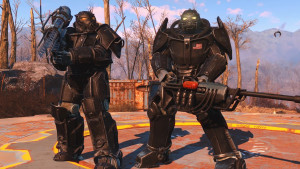Please support Game Informer. Print magazine subscriptions are less than $2 per issue
Soundcheck - A Newcomer’s Guide to Video Game Music

It’s unlikely that anyone reading this needs to be preached to about the evolving role of musical scores in video games. For some of you, however, perhaps the interest has evolved into a fascination with the audio component of games for its own sake. If you’re on that threshold, but haven’t yet crossed over into including game music on your iPod, a quick primer may be in order. We’ll take a look at six of the best recent original soundtrack releases, chosen both because of their excellence and for their wide availability in either CD format or as an iTunes download. We'll then check out video game music cover bands, remixes, and the legendary Final Fantasy composer Nobuo Uematsu.
Crysis
Inon Zur’s driving, rhythmic tracks for Crysis strangely blend traditional instruments with alien synths and militaristic percussion passages. The result is a relentless pace of action and suspense that carries the soundtrack from beginning to end. Your computer may not be able to handle the game, but your CD player shouldn’t have any trouble with the accompanying music.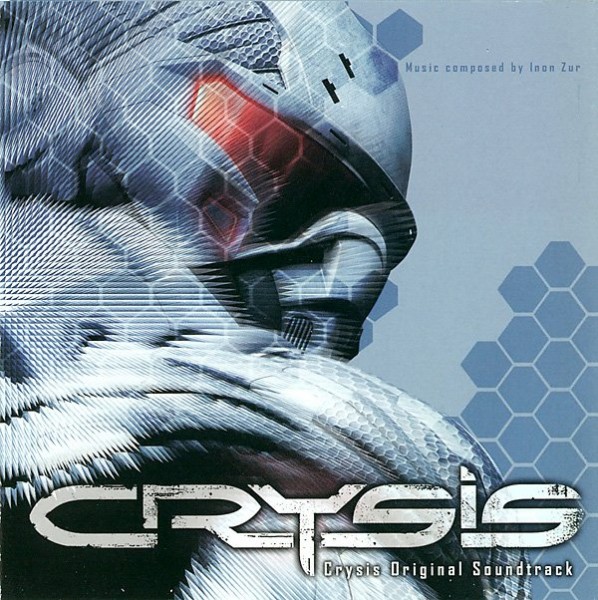
Uncharted: Drake’s Fortune
Few soundtracks have so accurately captured the vibe of a game world as Greg Edmonson’s score for Uncharted. Whether it’s a brief snatch of tribal drums or a splash of Spanish guitar, the soundtrack is awash in the pulp adventure tone of Nate Drake’s quest for his ancestor’s lost treasure.
Blue Dragon
While Nobuo Uematsu will likely be best remembered for his oft-cited work on Final Fantasy, his recent score for Blue Dragon takes things in a slightly different direction. While still rooted in familiar and traditional harmonies, the score for Blue Dragon adopts a much more childlike and whimsical tone than Uematsu’s earlier scores. Only the true believer will have much patience for the occasional digressions into questionable rock vocals, but the rest of the score hits the expected level of excellence you’d expect from one of the first masters in the genre.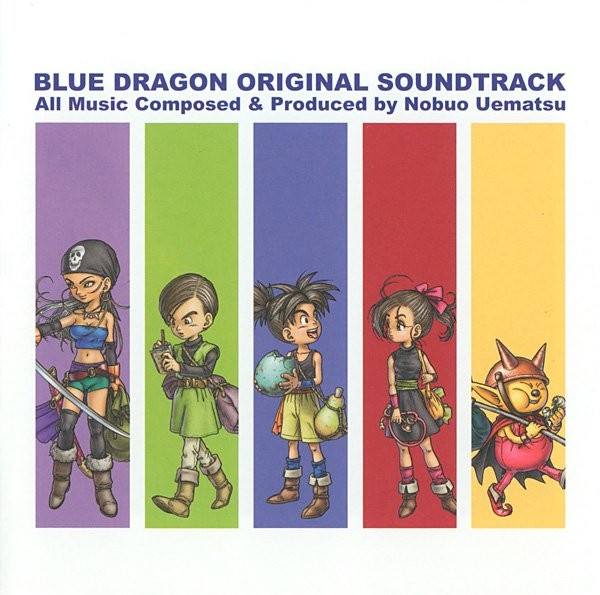
Mass Effect
You can’t mistake the synth-filled sweeps of the Mass Effect soundtrack. Almost every track carries the game’s identity in its tone, somehow taking the campy sounds of old school sci-fi movies and making them new and relevant. Composers Jack Wall, Sam Hulick, Richard Jacques, and David Kates seem to know exactly when to scale back arrangements, sometimes presenting an almost bare instrumentation that works to great effect.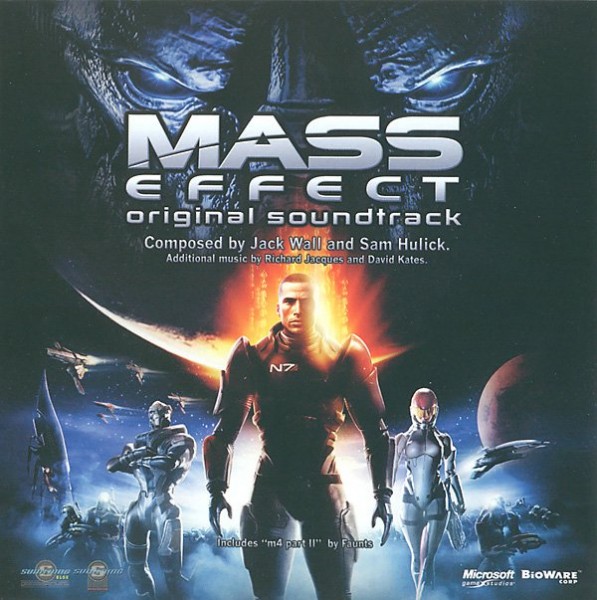
Halo 3
A few of the original Halo’s most recognizable tracks have crossed the threshold where even casual players recognize them and hum along. Even so, some of Martin O’Donnell’s and Michael Salvatori’s best work was saved for the final act of the Halo trilogy. In a two-disc set, the soundtrack traces its way through the battles and revelations of Halo 3. Both new music and brand new arrangements of familiar Halo tunes are given the full treatment of choir and orchestra, and the result is a fitting culmination for a franchise responsible for some of the best music in gaming.
Lair
Several hauntingly lilting and memorable musical motifs weave their way in and out of John Debney’s contemplative tracks for Lair, even while his more energetic and robust battle themes call to mind the sweeping grandeur of John William’s work on Star Wars. Taken as a whole, the soundtrack is a surprisingly deep and varied listen, particularly where traditional orchestral work is interlaced with the solo female vocalist’s plaintive melodies.
Here we take a quick look at the ever-growing world of video game cover bands. A relatively recent phenomenon, these gaming-focused musicians take familiar tunes (most often culled from 8-bit classic games) and reinterpret them in their own unique style. We’ve included four of the most well known bands in this growing genre, plus a few other of our favorite suggestions. Generally, each of the bands’ music is available on iTunes or through their websites.
Minibosses
The Minibosses is one of the most prolific gaming cover bands out there. Active since the turn of the century, the band has reinterpreted dozens of familiar gaming tunes. Their sound delivers clear and crisp melody lines with a solid rhythmic background, often steering into a harder edged driving beat than you’d sometimes expect out of the likes of Ninja Gaiden and Kid Icarus. As of this writing, you can check out a lot of their recent work for free on their website, then choose whether you’d like to support them with an album purchase.
The Advantage
This talented group currently based out of California has released a self-titled album and a follow-up entitled Elf Titled. Both releases tend to an eclectic mix of the familiar and the obscure, but are united by their intense attention to detail and rhythmic precision. From Metroid to Mega Man, the band chooses the most musically complex tracks from a given game, rather than the most remembered. Refreshingly devoid of extraneous instrumentation, The Advantage offers one of the most exciting options around for a pure rock take on the world of the 8-bit sound clip.
The OneUps
A totally unique sound sets The OneUps apart from their contemporaries, as they focus entirely on loose interpretations of classic gaming tunes in a jazz/funk style. Their Bossa De Link is Zelda as you’ve never heard it – smooth and languid, with some excellent solo work throughout. The rest of their still growing catalog is great fun, if for no other reason than to hear how they approach the familiar melodies.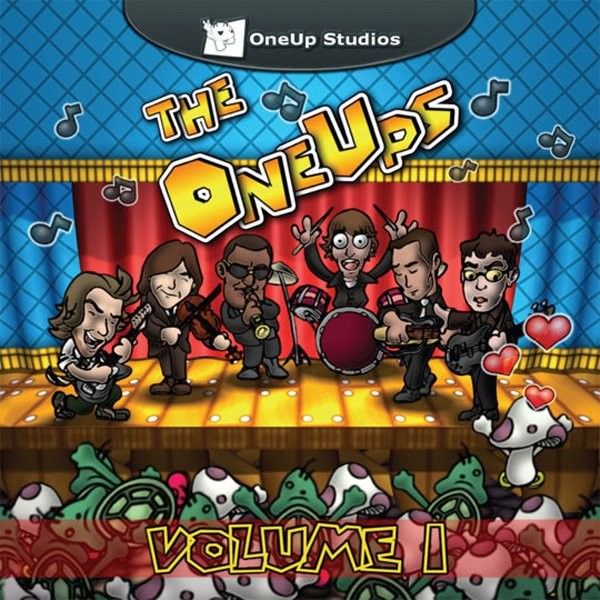
Powerglove
If you’ve ever wondered what Final Fantasy licks would sound like run through a power metal filter, Powerglove is the band for you. Even if you haven’t, you’ll likely be amazed at the technical skill exhibited by the band on every track from their premier album, Metal Kombat for the Mortal Man. Musically complex and adventurous, Powerglove brings a new sound to the scene.
So Many More:
More groups than we have room for here deserve your attention. In particular, we love the experimental sound of the NESkimos, where they repeatedly try out new styles to match the sentiments of individual games and series. For bands focused on individual series, you might enjoy Nobuo Uematsu’s own The Black Mages, who hone in primarily on Final Fantasy tracks. Alternately, check out The Megas, a group that is suitably named for their specialization in the various awesome tunes that emerged out of the Mega Man series. The lesson to take away? There’s a lot of great stuff out there to enjoy once you start looking around.
Here we delve deeper and take a look at the wider world of video game remixing. Live cover band acts are only a small segment of this ever-growing group of artists. Hundreds of musicians now remix existing game music, and much of their work is available free on the Internet. To get a comprehensive look at this thriving community, we spoke with David Lloyd, better known to many as djpretzel. Lloyd runs one of the most respected and comprehensive video game music sites online, OverClocked ReMix. We asked him about some of the specifics of the site, and what’s exciting about the remix scene right now.
Game Informer: What can folks expect to find at your website, OverClocked ReMix?
David Lloyd: First off, everything’s free – registering for the forums, downloading the MP3s, and we’ve also got a free BitTorrent distribution if you want to grab everything all at once. I think most initial visitors will want to see if their favorite game has any mixes. So, for example, if you’re into Mega Man X for SNES, you could search for mixes of that game and at the moment you’d get 14 tracks. We’ve got Zelda jazz, Final Fantasy techno, Castlevania metal – you name it.
GI: How do you decide what pieces of music to post on the site?
DL: We feel like the best way to honor game composers and their work is through interpretation, not just performance. We feel like arranging this music shows how flexible and powerful it truly is. To ensure that this standard is upheld, and to free up some of my time for improving/developing the site, we started a judge’s panel of about 10 people, usually ReMixers themselves, to vote on submissions.
GI: Are there challenges or concerns about copyright that you ever have to deal with when working on remixes?
DL: In over seven years, we’ve never received any legal threats, cease & desist letters, or anything of that nature. Knock on wood! Seriously, though, we are very careful to never charge for the music itself or make profit through its distribution. Basically, the only money we make is from shirt sales, donations, and advertisements, and that barely covers the cost of hosting the site in the first place, so if anyone ever sued us, they wouldn’t get much. Really, it’s not much different from fan art or fan fiction, both of which most game companies have realized is really just free advertising for their products.
GI: We hear you’re doing some cool stuff with the Street Fighter franchise right now. Can you tell us about that?
DL: We’re making history! A while ago we released an album of ReMixes from Super Street Fighter II called Blood on the Asphalt – you can check it out at http://sf2.ocremix.org. Anyways, Capcom liked it quite a bit and contacted us about using some of the tracks in their upcoming remake for XBLA and PSN, Super Street Fighter II Turbo HD Remix. So of course we said yes, and actually ended up doing the entire remixed soundtrack for the game, with some new pieces being created in addition to modified versions of tracks from the Blood on the Asphalt album. As far as we know, this is the first time a major game company has reached out to the game remixing community and used their arrangements in a major game title, and we’re proud that OverClocked ReMix was involved.
What You’ll Find On OverClocked ReMix
• Over 1,500 Remixes,
all available for free download
• 513 ReMix artists
• Information about
creating your own remixes
• Interviews with ReMix artists and original composers
• Over 150,000 fellow visitors every month
Other Recommended Sites
• Remix.Kwed.Org
Great remixes of Commodore 64 games
• Dwelling of Duels
Game arrangement competition site with an emphasis on live performances & musicianship, featuring some amazing rock/metal pieces
• SquareSound
Extensive resource for fans of Square music, with fan arrangements, album info, and frequent competitions
• VG Frequency
Blog covering the VGM fan remixing/arrangement scene, with news, links & editorials
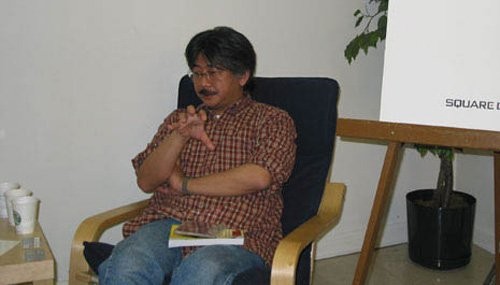
In the world of video game music, Nobuo Uematsu needs no introduction. He first gained recognition as the composer of the Final Fantasy series’ most memorable melodies, but Uematsu has branched out with other projects like his band (the Black Mages), his record label (Dog Ear Records), and the Press Start series of concerts. Here we get the legendary composer’s opinion on the current state of music in the video game industry.
How did you get your start in music? Did you aspire to create music for games?
Nobuo Uematsu: Music is something I picked up on my own. I just messed around with the piano and guitar lying around the house and figured out how to make songs. I didn’t set out to become a composer for video games. It just happened that about 25 years ago, composing game music was the only work out there for some no-name guy with no connections.
GI: How is doing a game soundtrack today different from 15 years ago? Do you ever wish you could go back to composing for 8-bit games?
NU: I actually don’t think it’s changed all that much. The only thing that’s really changed is what kind of music you’re aiming for: the rich and glorious sound of the orchestra, or just some good old fun electronic music on the 8-bit. Right now I don’t have any real intention of going back to compose music for 8-bit games, but if something interesting came along, I’d love to give it a shot.
GI: How closely do you follow the musical scores of other video games?
NU: Basically, I’ve never gone out of my way to listen to music from other games. Perhaps it’s because I’m scared I’d find out how bad I really am and start copying what others do…there’s just that many incredible composers in the industry making music for games. I could name a number of soundtracks that I like, and by holding the Press Start concert each year, I have a chance to share those favorites with audiences across the world.
GI: Video games are becoming a more global business. What do you perceive as the major differences between musical tastes of regions like Japan, Europe, and the U.S. when it comes to games?
NU: No matter where you go, the culture and circumstances surrounding people are different in every country and region, and it’s only natural for composers to express those influences in their work. Yet in this day and age when information can zip across the world in a flash and become something we all share, I sometimes feel that the music being written kind of sounds the same, no matter what country you’re from – that goes for me, too. Like blood coursing through the veins of that region’s culture, once you start putting that raw ethnic element into the mix, that’s when I feel video game music really gets interesting.
GI: With titles like Rock Band, Guitar Hero, and Wii Music, gamers are interacting with music more than ever. Do you see this trend affecting your work at all in the future?
NU: Not really all that much. Still, it’d be a lot of fun to see Wii Music take it up a notch and let you use the controller like a real instrument, or even give you feedback on how well you play the real deal.
GI: You have several projects going at the moment, from The Black Mages to your work at Dog Ear Records. What aspect of your career are you currently focused on the most right now?
NU: Obviously I put my all into whatever it happens to be I’m working on at the moment; everything I do in my career is something that I am proud of, but right now what I am really excited about is wrapping up my solo album. On this album I get to write all the songs and lyrics, have them performed by the musicians I picked, and, of course, foot the bill for all that goes into the production myself. People ask, “Why do you run yourself ragged working on an album that’s going to make you zilch?” The answer’s simple: Because I want to. Just like when I started messing around and making music as a kid some 30 odd years ago, I’m discovering the pure unadulterated pleasure of making music simply because I want to. I’m having a blast!


